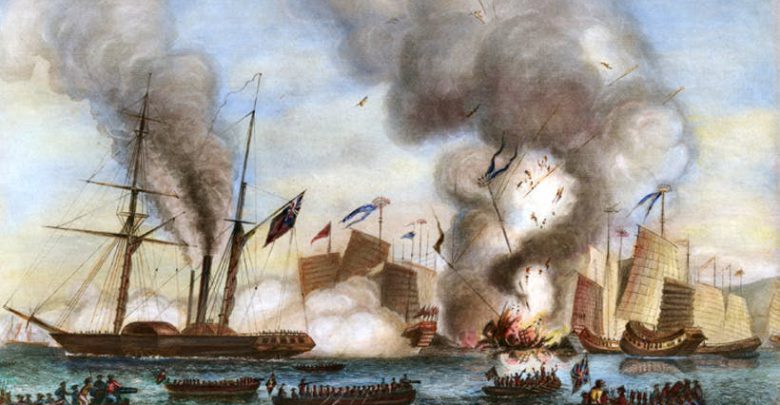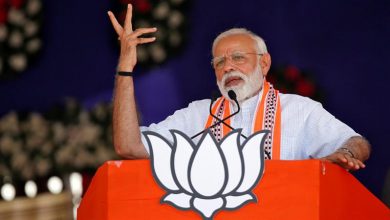
The heart of the First Opium War was in a trade decision to end the import of Opium to the Chinese Qing Dynasty between the years of 1839 and 1842. The trade dispute between the two began with the trade of teas, silks and porcelains – however the exports from China did not match the exports from Britain, the Chinese would only buy silver from the United Kingdom resulting in a significant lack of precious metals in the country. Responding to this, the East India Company and other British merchants began smuggling Indian opium into China illegally and would only take return payment in silver. By the year 1839, silver from the opium trade paid for the entire tea trade.
What is Opium?
Opium is a depressant drug which slows down messages sent from the brain to the body. The drug is highly addictive and has terrible physical ramifications. Cultivated from the poppy flower, opium was traditionally smoked through a pipe. Although it began being used for medicinal purposes in China in the 7th century, by the time of the Opium War in the 19th century its medicinal usage had transformed into a recreational and addictive substance. The majority of the Qing military was said to have been addicted to the substance.
Lin Zexu, a Chinese scholar and official of the Qing Dynasty, held a formidable opposition to the opium trade. His fierce opposition is what ultimately drew the British into the First Opium War with China, as the British saw the destruction of their supply of Opium as hostility. When the hostility came from the Chinese empire down on the British, Qing leader Lin Zexu wrote a letter to Queen Victoria questioning the morality of the opium trade into China.
The First Opium War
After the Qing dynasty banned the substance in 1840, the British government launched a military expedition to press China with demands regarding new trade regulations. In May of 1841, the British attached the walled city of Canton which provoked a counterattack by the Cantonese military. The British outmaneuvered the Chinese in military technology and superiority, as the Chinese troops were ill-equipped and lacked training for warfare against such formidable weaponry. Additionally, the societal rift between the Chinese population and their military commanders was evidenced in a weak and disorganized defense against the British.
Treaty of Nanjing
The end of the first opium war concluded in the Treaty of Nanjing, which effectively ceded Chinese control of Hong Kong to Britain, opened ports to British trade, abolished the former cohong system, agreed to official trade recognition and paid millions in indemnity. Two supplementary agreements, the Treaty of Wanghia and the Treaty of Whampoa, established privileges of most favored nation clauses which guaranteed trade equality to every signatory.



